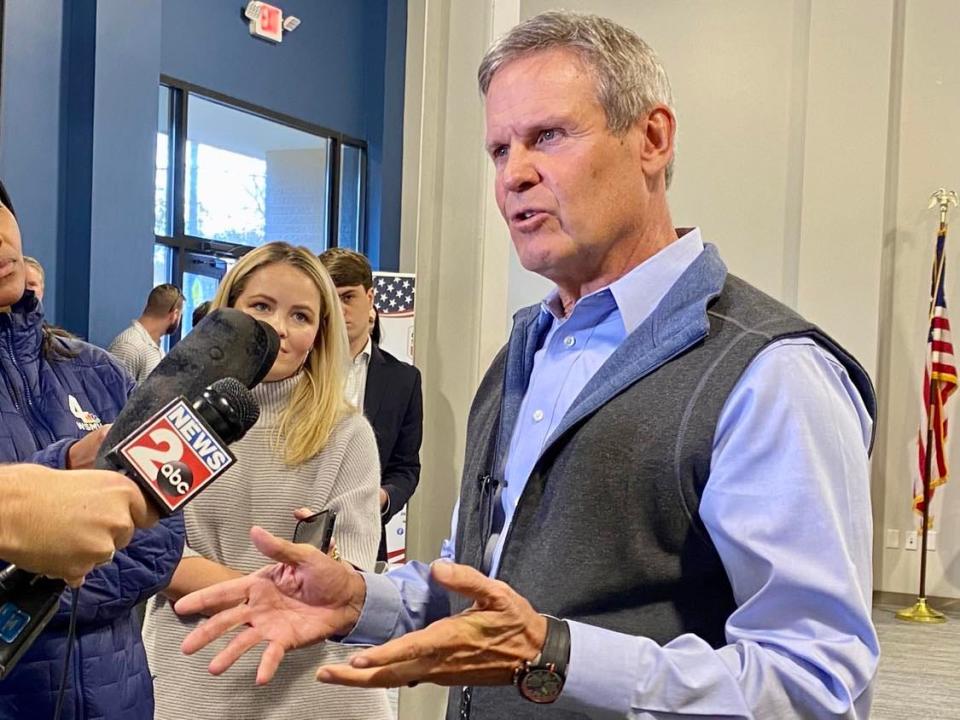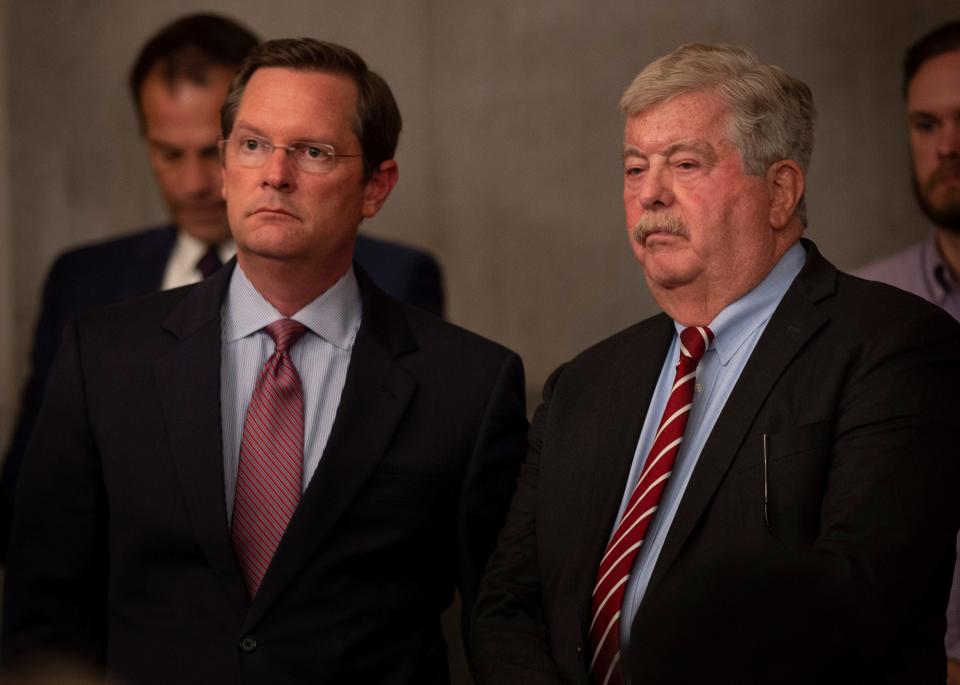Tennessee Gov. Bill Lee won't bring back risk protection order proposal on guns next year
- Oops!Something went wrong.Please try again later.
Tennessee Gov. Bill Lee will not bring back a proposal he pushed earlier this year to keep guns out of the hands of dangerous people when the legislature returns in January.
Lee first proposed establishing an extreme risk protection order law ― a policy that would allow a judge to temporarily remove guns from a person if they are found to pose a risk of harm to themselves or others after a court hearing and mental health evaluation ― shortly after the Covenant School shooting. He released draft legislation in the waning hours of the legislative session in April, and repeatedly encouraged lawmakers to take it up, saying "we owe Tennesseans a vote."
Republicans bristled at the governor's timing, and adjourned the regular session without addressing his proposal. So hours after they adjourned, Lee announced that he would call them back to Nashville for a special legislative session.

Gun rights groups stringently opposed Lee's proposal, which they condemned as a "red flag" law, claiming it would violate the Second Amendment rights of Tennesseans. Despite their opposition, Lee pressed on. Throughout the summer, he met with lawmakers on both sides of the aisle, but in the final days before the special session was set to begin, only seven lawmakers publicly supported the policy.
The governor did not include his ERPO proposal in his legislative package for the special session.
Now, it's dead — at least as part of a push from Lee. The governor told reporters Monday that he does not intend to pitch his ERPO proposal again when the legislature returns in January.
"I'm not looking to bring that bill," Lee said Monday.
Instead, the governor may propose some of the bills he backed during the special session that didn't get passed as the House and Senate came to an impasse on the scope of session. The Senate favored taking a narrower path with a focus on discussing other legislation in January. Lee did not cite which bills he might back again.
"I am looking for an opportunity in this next session to continue to work on public safety," Lee said. "The special session produced a lot of bills that I suspect we're going to see again in the regular session, to look at ways to provide a safer environment for people in Tennessee."
Gun safety policies will likely continue to be a major theme ― and a contentious one ― when lawmakers return next year.
More: After months of anguish, the fight over guns heads into a new legislative session
"We should never stop talking about public safety," Lee said.
House Speaker Cameron Sexton, R-Crossville, last week blamed the Senate for, in the rush to adjourn, not taking up a bill that he says could have required the suspect charged with firing the bullet that killed Belmont University student Jillian Ludwig to be involuntarily committed.

Shaquille Taylor, who is now facing multiple charges related to Ludwig's death, was prosecuted for aggravated assault with a deadly weapon in April, the Davidson County District Attorney's Office confirmed. During his competency hearing, three court-appointed doctors testified that he was incompetent to stand trial, and his case was dismissed. Taylor did not meet the state’s standards for involuntary commitment, and was released from custody.
Sexton's legislation, House Bill 7036, would have required individuals to be involuntarily committed to a mental institution if they are found to pose an “imminent” likelihood of serious harm. The speaker is working on the bill with Nashville District Attorney Glenn Funk, and has said that he plans to re-file the legislation in January.
Lt. Gov. McNally, R-Oak Ridge, disagrees with Sexton, saying that no bill that was filed during special session would have saved Ludwig. Their disagreement could signal continued tension between chambers as the legislature moves toward reconvening in January.
Lee said he will work with both chambers to take up public safety-focused bills next year.
"Our office is working together with both of them," Lee said. "Another session coming up. A lot of good opportunities to serve the people ― and both chambers, the entire General Assembly will be focused on that ― and we will also."
Vivian Jones covers state politics and government for The Tennessean. Reach her at vjones@tennessean.com.
This article originally appeared on Nashville Tennessean: TN gun laws: Gov. Lee won't bring back emergency protective order bill

